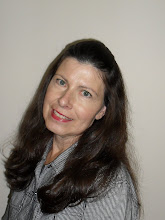One of the books I am reading is "Putting the Public Back in Public Relations: How Social Media is Reinventing the Aging Business of PR" by Brian Solis and Deirdre Breakenridge.
Solis is "globally recognized for his views and insights on the convergence of PR, Traditional Media and Social Media "according to amazon.com, and his blog is highly rated by Technorati.
Breakenridge is President and Director of Communications at PFS Marketwyse, a marketing communications agency in New Jersey.
You can follow Solis at his blog to learn more about what's new in PR.
Sunday, September 20, 2009
Thursday, September 3, 2009
EPIC 2015
Check out EPIC 2015 at YouTube.
What strikes me most about this message is that all of this technology was up and running in a very short space of time without any regulations, controls or taxes from any government on the planet. Any possible income goes to private companies and individuals.
How did the U.S. miss getting a piece of this industry and finding a way to tax it? Part of the answer may be that many of the developers were younger with an anti-establishment attitude. I think that is the best part.
What if there were censors on Web postings or e-mails? The messages would be lost--think of the World War II censorship that controlled information leaving and entering the U.S.

A wartime censor excises text from a letter with a sharp knife. (NARA, 216-FS-6176B-82)
Source: http://www.archives.gov/publications/prologue/2001/spring/mail-censorship-in-world-war-two-1.html

What strikes me most about this message is that all of this technology was up and running in a very short space of time without any regulations, controls or taxes from any government on the planet. Any possible income goes to private companies and individuals.
How did the U.S. miss getting a piece of this industry and finding a way to tax it? Part of the answer may be that many of the developers were younger with an anti-establishment attitude. I think that is the best part.
What if there were censors on Web postings or e-mails? The messages would be lost--think of the World War II censorship that controlled information leaving and entering the U.S.
A wartime censor excises text from a letter with a sharp knife. (NARA, 216-FS-6176B-82)
Source: http://www.archives.gov/publications/prologue/2001/spring/mail-censorship-in-world-war-two-1.html

Wednesday, September 2, 2009
Ethics in PR
A PR student/employee/professional can follow all of the Code of Ethics for both the Public Relations Society of America and the International Association of Business Communicators and still conduct research in a way that is unethical. Their job and professional reputation may be in jeopardy .
The basic guidelines are simple. Practice the Golden Rule and treat everyone fairly and truthfully. Make sure you inform all participants of the entire process, allow them a chance to opt out, explain what is being researched, protect them from all forms of harm, and all data should be collected anonymously and held in the highest confidence.
Treat them with respect and refer to them as participants, students, consumers, etc. Never use the terms "victims" or "subjects" (are you ruling over them?).
The basic guidelines are simple. Practice the Golden Rule and treat everyone fairly and truthfully. Make sure you inform all participants of the entire process, allow them a chance to opt out, explain what is being researched, protect them from all forms of harm, and all data should be collected anonymously and held in the highest confidence.
Treat them with respect and refer to them as participants, students, consumers, etc. Never use the terms "victims" or "subjects" (are you ruling over them?).
Subscribe to:
Posts (Atom)
